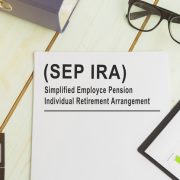What Does a Self-Directed IRA Custodian Do, and Why Do You Need One?
In investing with a Self-Directed IRA, you might be attracted to the independence that comes with the wide range of investments you can choose from. But utilizing this independence means that you will be working with an administration firm known as a Self-Directed IRA “custodian.” To make sure that you know what you’re getting into before you open up a Self-Directed IRA, it helps to know what this custodian does.
The Role of a Self-Directed IRA Custodian
The word “custodian” here is applied metaphorically, but it does still have relevance to the role of a financial custodian.
A custodian is the entity that handles Self-Directed IRAs. Investopedia refers to custodians as a “bank, a federally insured credit union, a savings and loan association, brokerage or an entity approved by the Internal Revenue Service (IRS) to act as a trustee.”
This means that a Self-Directed IRA custodian will help administrate the Self-Directed IRA you hold—but they won’t be able to take on additional roles that you might be used to.
In understanding what a Self-Directed IRA custodian does, it helps to know these limitations.
Your Responsibilities as a Self-Directed IRA Investor
Just how much does a custodian do? Let’s start by looking at the roles they are not allowed to take on:
- Understanding the taxability of money in your account. Your Self-Directed IRA custodian is not a personal accountant. To make sure that you pay all necessary taxes you incur when using an IRA, make sure that you have a personal accountant go through these accounts to help you.
- Taking on due diligence with each investment. A Self-Directed IRA custodian is not an investment advisor, either. They will not be giving you advice on how to handle real estate within an IRA, for example—they will simply administrate the account. Your research for each investment will be entirely up to you. This is the kind of independence that you’ll have to get used to with a Self-Directed IRA.
Once you understand these limitations of the Self-Directed IRA custodian, you will make a better decision: do you want this much independence, or do you prefer something a little more guided? For many investors, an IRA is a great opportunity to simply use their IRA on their own terms.
How to Select a Self-Directed IRA Administration Firm
Why do you need a Self-Directed IRA custodian? Simple: you need a trustee responsible for the administration of the account. But not all IRA custodians, or administration firms, are made alike. It helps to know what makes them different.
For starters, look for experience. You don’t want to be your Self-Directed IRA custodian’s first client. You do not want them to be inexperienced with specific topics, either. For example, if you use a lot of real estate in your investment strategies, selecting a IRA administration firm without real estate experience would be a no-no.
Also consider the fees that the Self-Directed IRA administration firm might charge. You need to know this, as this will dig into your potential returns and might even steer your IRA strategy.
Managing your own IRA can be a great way to access nontraditional assets like real estate and precious metals within a retirement account. But with that kind of power comes the responsibility of knowing what a Self-Directed IRA custodian does—and what they do not do. Once you know your responsibilities, you will be better able to manage your own retirement strategy and take advantage of these tax-protected accounts.
Interested in learning more about Self-Directed IRAs? Contact American IRA, LLC at 866-7500-IRA (472) for a free consultation. Download our free guides or visit us online at www.AmericanIRA.com.









